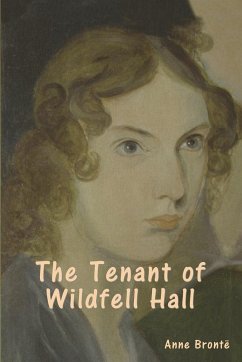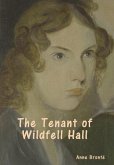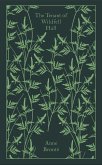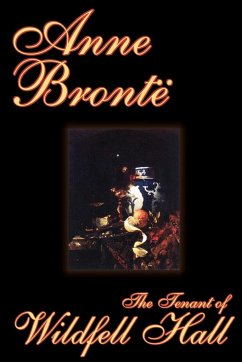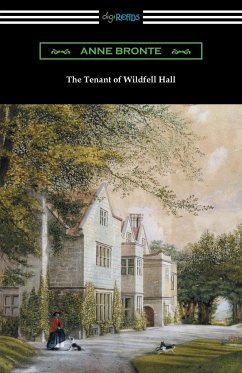The Tenant of Wildfell Hall is the second and final novel written by English author Anne Brontë. It was first published in 1848 under the pseudonym Acton Bell. Probably the most shocking of the Brontës' novels, it had an instant and phenomenal success, but after Anne's death her sister Charlotte prevented its re-publication in England until 1854. The novel is framed as a series of letters from Gilbert Markham to his friend about the events connected with his meeting a mysterious young widow, calling herself Helen Graham, who arrives at Wildfell Hall, an Elizabethan mansion which has been empty for many years, with her young son and a servant. Contrary to the early 19th century norms, she pursues an artist's career and makes an income by selling her pictures. Her strict seclusion soon gives rise to gossip in the neighbouring village and she becomes a social outcast. Refusing to believe anything scandalous about her, Gilbert befriends her and discovers her past. In the diary she gives Gilbert, she chronicles her husband's physical and moral decline through alcohol and debauchery in the dissipated aristocratic society. Ultimately she flees with her son, whom she desperately wishes to save from his father's influence. The depiction of marital strife and women's professional identification is mitigated by the strong moral message of Anne Brontë's belief in universal salvation. Most critics now consider The Tenant of Wildfell Hall to be one of the first feminist novels. May Sinclair, in 1913, said that "the slamming of [Helen's] bedroom door against her husband reverberated throughout Victorian England." In leaving her husband and taking away their child, Helen violates not only social conventions but also the early 19th-century English law. (Wikipedia.og) About the author: Anne Brontë (17 January 1820 - 28 May 1849) was an English novelist and poet, and the youngest member of the Brontë literary family. Anne Brontë was the daughter of Maria (née Branwell) and Patrick Brontë, a poor Irish clergyman in the Church of England. Anne lived most of her life with her family at the parish of Haworth on the Yorkshire moors. Otherwise, she attended a boarding school in Mirfield between 1836 and 1837, and between 1839 and 1845 lived elsewhere working as a governess. In 1846 she published a book of poems with her sisters and later two novels, initially under the pen name Acton Bell. Her first novel, Agnes Grey, was published in 1847 at the same time as Wuthering Heights by her sister Emily Brontë. Anne's second novel, The Tenant of Wildfell Hall, was published in 1848. The Tenant of Wildfell Hall is often considered one of the first feminist novels. Anne died at 29, most likely of pulmonary tuberculosis. After her death, her sister Charlotte edited Agnes Grey to fix issues with its first edition, but prevented republication of The Tenant of Wildfell Hall. As a result, Anne is not as well known as her sisters. Nonetheless, both of her novels are considered classics of English literature. (Wikipedia.og)
Hinweis: Dieser Artikel kann nur an eine deutsche Lieferadresse ausgeliefert werden.
Hinweis: Dieser Artikel kann nur an eine deutsche Lieferadresse ausgeliefert werden.

